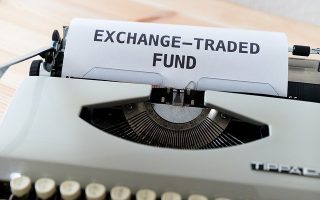
Many retirees assume owning a home outright is the cheapest way to live. After all, no mortgage means lower monthly bills, right? But homeownership still comes with taxes, insurance, maintenance, and unexpected repairs. Renting, on the other hand, offers predictable costs but no equity growth. So which is really cheaper in retirement—renting or owning—once you count everything?
Property Taxes Add Up Quickly
Even without a mortgage, retirees still owe property taxes every year. In high-tax states, this can add thousands of dollars to annual expenses. Renting eliminates that line item completely. Retirees living on fixed incomes may appreciate the predictability. Taxes often make “free and clear” homes less free than they seem.
Maintenance Costs Are Unpredictable
Owning a home means being on the hook for every repair, large or small. A new roof, HVAC system, or plumbing issue can cost thousands at once. Renters simply call the landlord and avoid the bill. Retirees often underestimate how much maintenance drains their budgets. Ownership carries hidden volatility renters don’t face.
Insurance Differs Between Owners and Renters
Homeowners insurance is more expensive than renter’s insurance, especially in high-risk states. Coverage for structures, liability, and disasters adds up. Renters, by contrast, only insure belongings and personal liability. The difference can be hundreds of dollars annually. Insurance costs tilt the math in renting’s favor.
Equity Provides Security and Flexibility
While renting reduces surprise expenses, it builds no equity. Retirees who own homes outright can tap equity through downsizing, reverse mortgages, or sales. This creates a safety net that renters lack. Ownership provides a sense of permanence and potential inheritance value. Equity is a long-term advantage renting can’t match.
Rent Increases Threaten Predictability
Renting feels predictable—until the landlord raises rates. In competitive markets, retirees may see rents climb faster than Social Security checks. Owning shields retirees from landlord whims, with only taxes and insurance fluctuating. Rent control laws help in some areas but aren’t universal. Rising rents can destabilize retirement budgets.
Lifestyle Considerations Matter Too
For some retirees, freedom from upkeep is priceless. Renting means no lawn mowing, snow shoveling, or late-night repair calls. For others, the pride of ownership and control over space outweighs the hassle. Lifestyle preferences influence costs as much as numbers. Cheaper isn’t always better if it undermines quality of life.
Local Markets Change the Equation
The rent vs. own debate depends heavily on location. In some cities, owning is far cheaper than renting, while in others, the reverse is true. Retirees should crunch numbers based on their specific market. National averages don’t tell the full story. Location determines whether renting or owning wins financially.
Why Renting vs. Owning Is More About Priorities
Renting can be cheaper once you add up taxes, insurance, and repairs—but it comes with instability and no equity. Owning creates hidden costs but offers long-term security and control. Retirees must weigh predictability against permanence. The right choice isn’t always about dollars—it’s about peace of mind.
Do you think renting or owning is the smarter choice in retirement? What hidden costs surprised you most?
You May Also Like…
- Why Middle-Class Adults Are Now Renting Tools Instead of Owning
- Renting vs. Buying in 2025: Which Makes More Sense Now
- 7 Hidden Costs of “Aging in Place” No One Mentions
- 10 Home Renovations That Make Aging in Place More Dangerous
- 9 Expensive Home Features That Make Aging in Place Impossible

Teri Monroe started her career in communications working for local government and nonprofits. Today, she is a freelance finance and lifestyle writer and small business owner. In her spare time, she loves golfing with her husband, taking her dog Milo on long walks, and playing pickleball with friends.






Comments